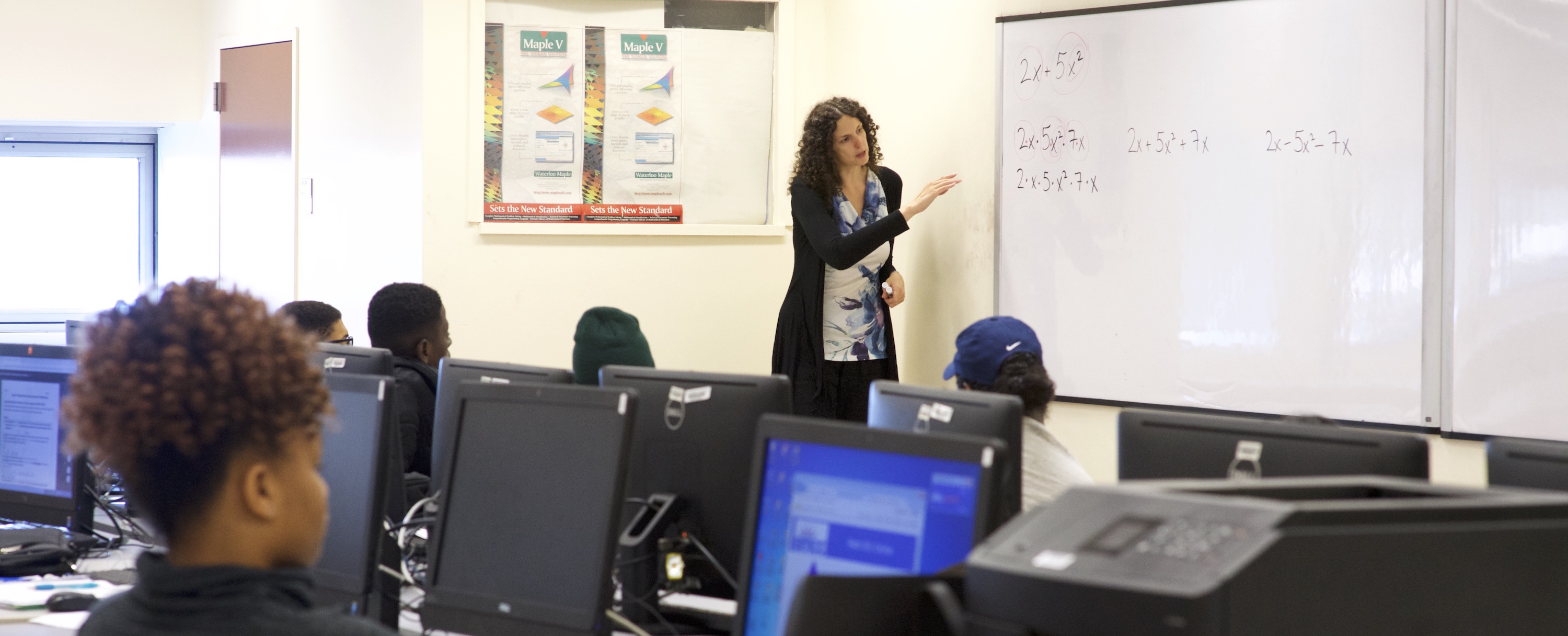
July 29, 2019
Borough of Manhattan Community College (BMCC/CUNY) Mathematics Professor Claire Wladis has been awarded a $2.5 million grant from the National Science Foundation (NSF) to investigate whether online courses provide increased access to STEM college degrees—particularly to students underrepresented in STEM fields.
“Students who work or have children as well as students who are older are all more likely to choose online courses,” said Wladis. “They oftentimes have lower income, challenging commutes, and cite overall time constraints and the need for flexible scheduling as a primary reason for enrolling in online courses.”
Over a five-year period, Wladis, who is the principal investigator on the project, along with Business Management Professor Katherine Conway and Christopher Rhoads, a professor of research methods at the University of Connecticut as well as Alyse Hachey, a professor of teacher education at the University of Texas in El Paso, will collect data on roughly 22,000 students at The City University of New York (CUNY).
The team will use the data to investigate whether online courses enable non-traditional students, who often have work and family responsibilities, to enroll in more courses, to persist in STEM fields and in college at higher rates, and to make faster progress towards their degree.
Each year, between 28 and 36 percent of postsecondary students in the United States enroll in at least one online course. At the nation’s community colleges—which have large populations of first-generation, low income, female and minority students—online courses have been widely adopted.
Some studies have shown that students who take online courses are at higher risk of course or college dropout, which raises concerns about whether online courses are a good option for all students.
“Any risk of increased attrition in online courses is only one half of the equation—to determine the full impact of online course-taking on student outcomes, we need to know not only if students are more likely to drop out of online versus face-to-face courses, we also need to know if offering online courses allows students to enroll in and complete courses that they otherwise would not be able to take,” Wladis said.
If some students do enroll in more courses when they are available online, then even if they are more likely to drop an online course, they may still be successfully completing more courses than if they only had face-to-face options, she says.
In previous research, Wladis and her team found that a large number of students would have taken fewer classes in a given semester if they hadn’t had the option of taking at least one class online.
“We have all these different pieces of evidence that suggest that online courses probably give students more access to college, but we can’t know for sure whether this actually happens and what the net impact is, because no large scale research has studied it,” said Wladis.
Wladis says the research funded by this grant will be one of the first projects to use methods that should allow researchers to make causal inferences about the net impact of online course availability on college outcomes for students who are interested in taking STEM courses online.
- BMCC Math Professor Claire Wladis will serve as principal investigator
- Five-year study will collect data on 22,000 students
- Research will investigate whether online courses accelerate STEM degree completion

